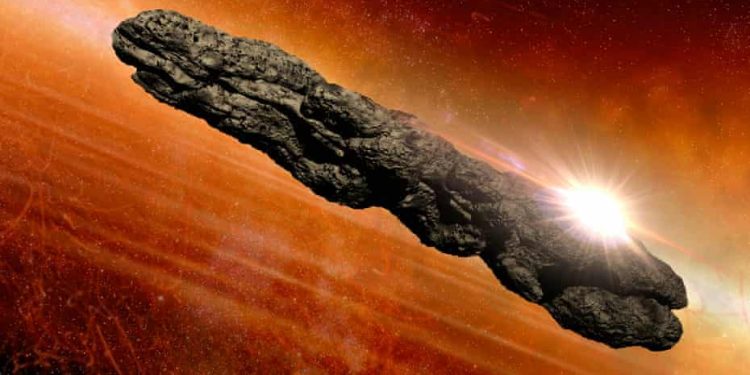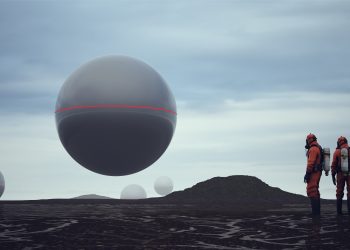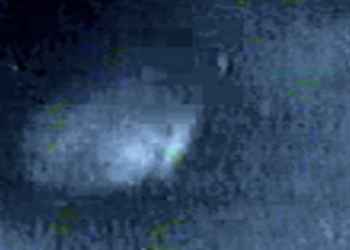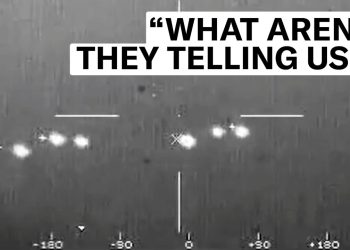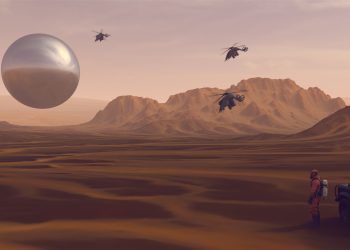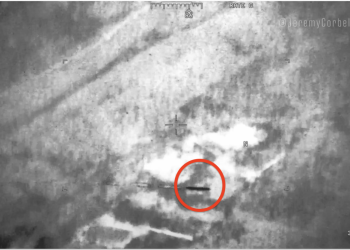Just imagine the vastness of the universe and how little we know about it. Now imagine Earth as nothing more than a grain of sand in a desert. Is it really possible that we are alone in this vast entity? A little bit over three years ago, scientists intercepted the first interstellar object passing through the Solar System. Years later, the question about the origin of this object – ‘Oumuamua, remains unanswered.
Oumuamua attracted widespread interest after astrophysicist David Trilling and his team discovered fresh layers of ice on its surface. A number of subsequent studies have shown extremely unusual properties of Oumuamua that make it completely different from anything that we have observed in space in the past.
This, of course, gave way to one of the biggest questions yet unanswered: Are we alone in the universe, and was Oumuamua the first real sign of alien life?
The questions have provoked heated debates in the past three years and gave birth to numerous scientific studies supporting both sides of the coin.
When it comes to the idea that Oumuamua was indeed an alien spacecraft or debris, there isn’t a more dedicated supporter of the theory than Avi Loeb, chair of Harvard University’s astronomy department.
Oumuamua. Was it the first real sign of alien life?
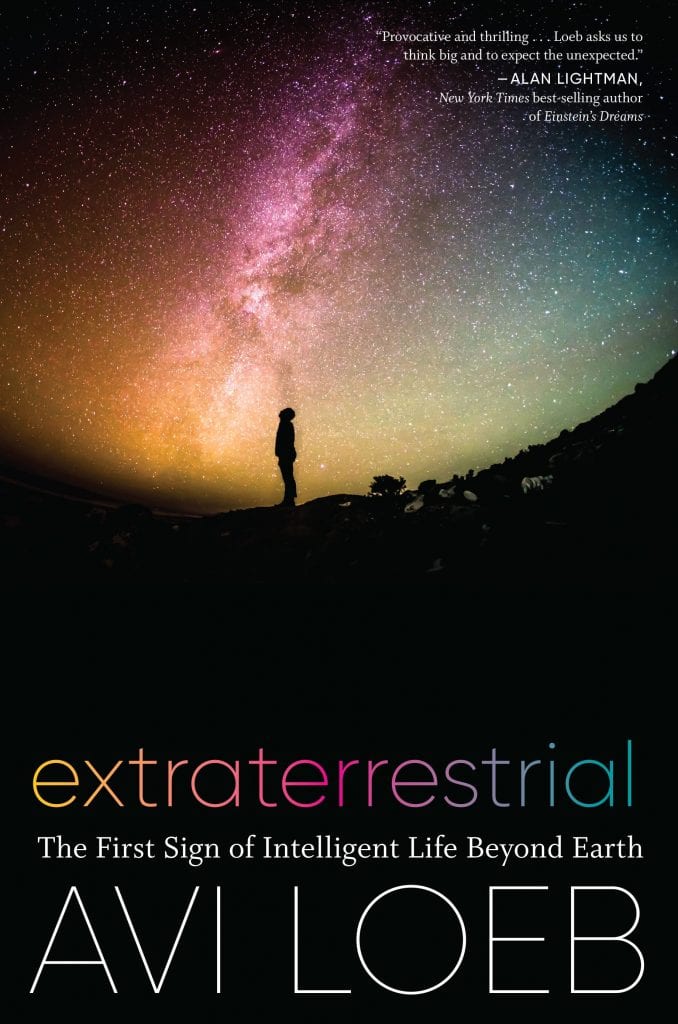
In the past few years, Loeb has expressed his opinion on many occasions but now, his new book entirely focused on Oumuamua is out. The name is “Extraterrestrial: The First Sign of Intelligent Life Beyond Earth” and in it, he explains his hypothesis and addresses different reasons why Oumuamua was the first sign of alien life.
Over the course of the book, Loeb articulates various arguments in support of the theory that Oumuamua was either a spaceship or unfunctional junk left by an extraterrestrial civilization. He addresses the unusual dimensions of the object, believed to be cigar-shaped, which suggests it must be artificial.
He also discusses the slight acceleration of Oumuamua on its way out of the Solar System to which, however, scientists found no answer. They found no trace of any emissions that could point to a cause of this increase in speed.
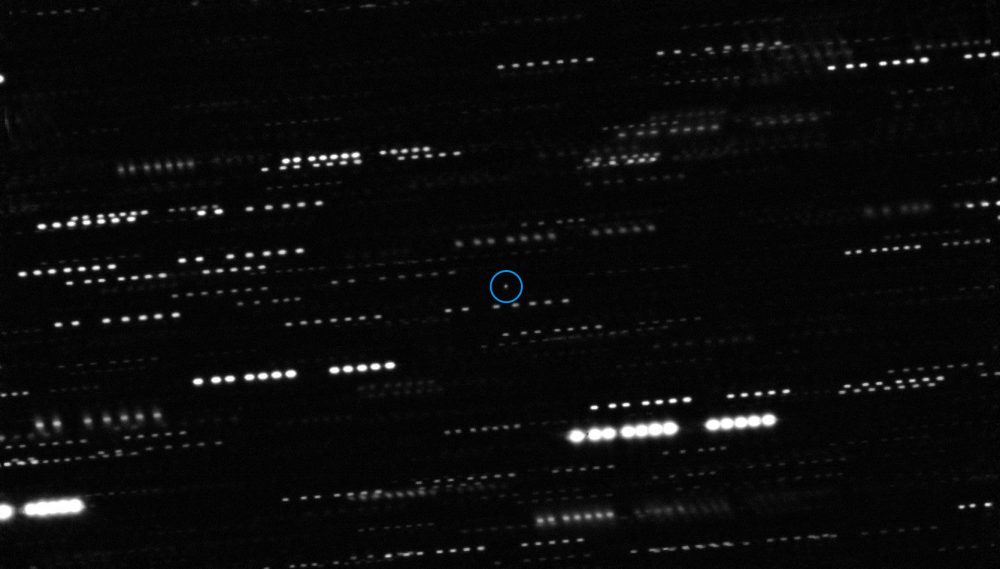
Professor Loeb has an answer to this question as well. He has suggested that Oumuamua was actuated with the help of a massive light sail. In a recent interview for CNN which you can find here, Loeb explained in detail the mechanism of the light sail which could have given Oumuamua the extra push in speed. He explained that the force of light could be what gave it the initial acceleration while as it was going further and further from the Sun, its speed also decreased.
The curious thing is that there is actually an active project called Breakthrough Starshot, which Loeb has also been part of for years. This scientific group has been developing interstellar probes with light sails to be sent to the Alpha Centauri star system.
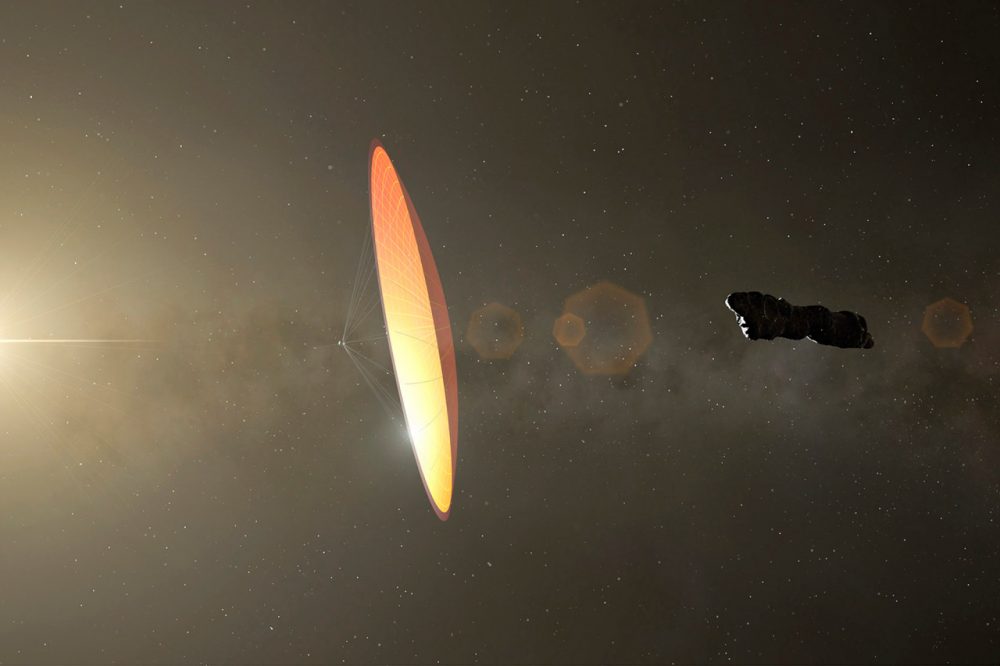
While Loeb definitely gives a lot of intriguing arguments about Oumuamua in his book, the case remains far from closed.
In a different recent interview for Scientific American, Loeb was asked about the impact on his reputation because the majority of his colleagues disagree with his theories. In full detail, he addressed the obvious unwillingness to take risks and the major problem in the scientific community which is keeping us from making significant discoveries.
Most experts want to keep their reputation instead of going outside the box and potentially making a mistake. He sees nothing wrong to assume that alien life could exist and that humans are not the most advanced beings in the universe.
We should search for other similar objects in the Solar System
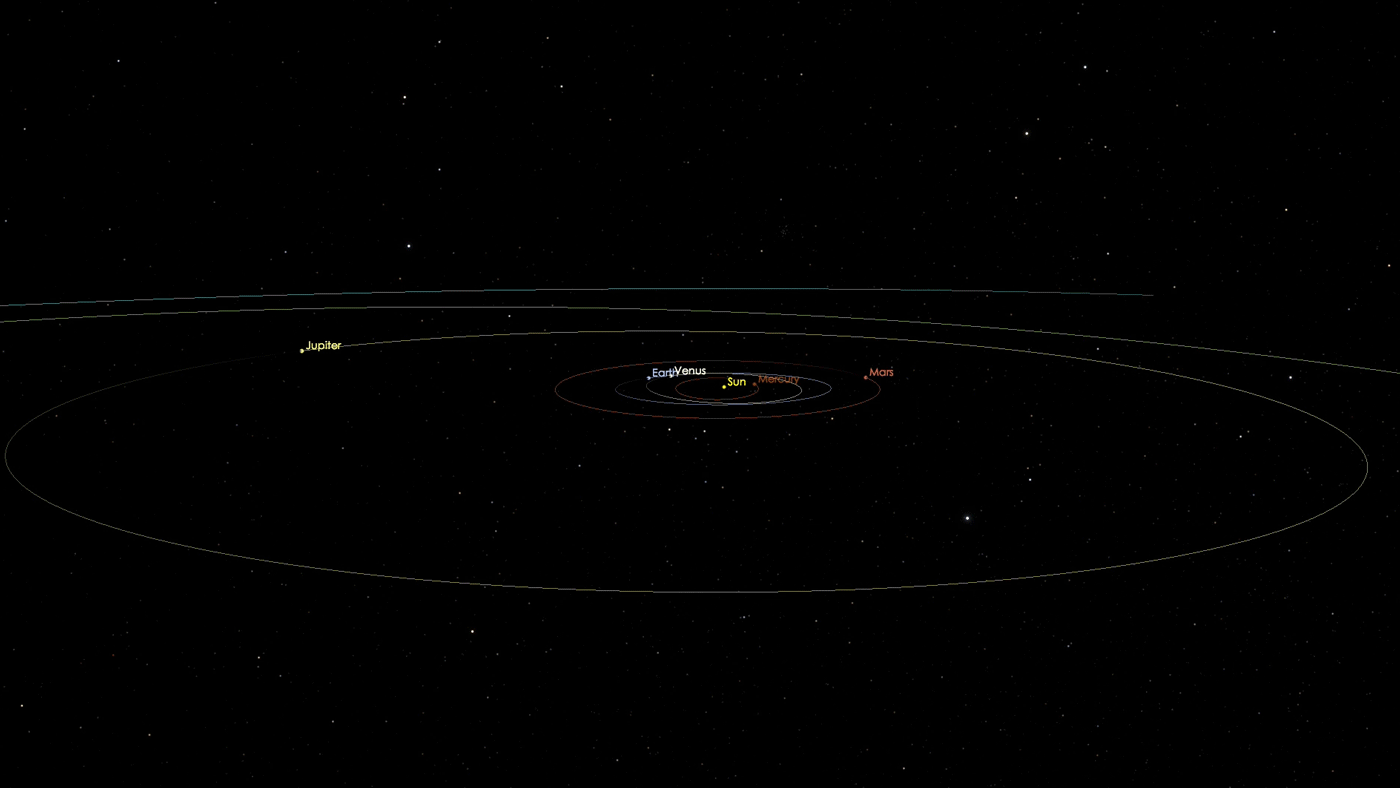
In the end, nothing about Oumuamua can be confirmed at this point. There is no way for us to study the object at this point and as it seems, it will remain a mystery for a long time.
The only way forward is to focus on the search for similar objects in the Solar System. What scientists need to do is find such objects at an earlier stage so that they can monitor them when they pass at the closest distance to Earth.
This will give experts the necessary time to prepare a probe that could be sent to the object, for example. Such preparations usually take several years but if we are aware of the approach of a similar object, this could be the best way to study the potential target.
As for Oumuamua, I believe that the game of guessing will continue. In over three years, not much has been revealed and I find it hard to believe that anything ever will. Perhaps scientists found the object too late which gave little time for observations and studies.
For now, you will have to decide for yourself whether Oumuamua was the first sign of alien life or nothing more than something natural that is completely new to science.
Join the discussion and participate in awesome giveaways in our mobile Telegram group. Join Curiosmos on Telegram Today. t.me/Curiosmos
Sources:
• Billings, L. (2021, February 01). Astronomer Avi Loeb Says Aliens Have Visited, and He’s Not Kidding.
• Micheli, M., Farnocchia, D., Meech, K., Buie, M., Hainaut, O., Prialnik, D., . . . Petropoulos, A. (2018, June 27). Non-gravitational acceleration in the trajectory of 1I/2017 U1 (‘Oumuamua).
• Moshakis, A. (2021, January 31). Professor Avi Loeb: ‘It would be arrogant to think we’re alone in the universe’.
• Siegel, E. (2021, January 28). The Uncensored Guide To ‘Oumuamua, Aliens, And That Harvard Astronomer.
• Thompson, V. (2021, January 27). A high-profile astronomer argues that the strange interstellar object ‘Oumuamua may be an alien signal.



